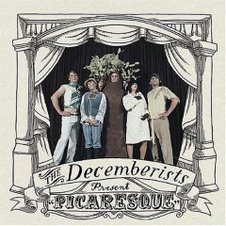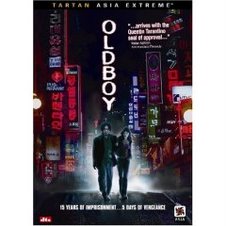It's tough on those of us who don't believe. I know, I know, we get to sleep in on Sundays and spend our extra 10% with abandon, but it's hard to turn your back on something that helped mold who you are.
Ambivalent is the word. I feel pulled in two directions. On the one hand, I can't imagine my life without the overpowering architecture of Mormonism looming over it. On the other, I don't like a lot of the shadows that it cast over my life.
Like a lot of Utah Mormons, my family was organized around the church almost exclusively. Almost all our friends were from the church, and almost all our free time was spent there or at other church activities. Between Scouts, Young Women, Relief Society and my parents' callings, church occupied more time than anything besides school for me or work for my parents.
When I was an adolescent, my father was called to be a mission president in a foreign country. (Incidentally, I think it's insulting the way they ignore the spouses of Mission Presidents, but that's a rant for another day.) Instantly our whole life was changed.
This came as quite a shock. First of all, we were a solidly middle class family in a middle class Utah ward and my dad was fairly young. He was nowhere near retirement age, had no assets to speak of besides our house, and was a Young Men's advisor. The highest calling he had ever held was 1st counselor in the Bishopric.
Nevertheless, my parents both quit their jobs with no prospects of getting them back and sold our house at way below market value--talk about a motivated seller. I left my school and all the friends I had accumulated since kindergarten and moved to a foreign country, where a new house, a new language, and a new life awaited me.
Needless to say, it was the best thing that ever happened to me. I was exposed to so many new people and places and experiences that I never could have had back in Utah. At the same time, being a Mormon and living in a different country always made me the outsider looking in. Adolescence isn't easy for most kids, but I think Mormon adolescents experience a special kind of hell. When you're just trying to figure out what's right and wrong, it doesn't help to have the constant pressure to be perfect weighing on your every decision. I wanted to be able to have fun, and not worry about whether I was procrastinating the day of my repentance.
It was hard fitting in as the outsider, and all the Mormon pressure weighed on me a lot; consequently or unrelatedly, I went through alternating cycles of depression and elation. I would be happy (due in large part to my new, exotic locale and friends) and then, suddenly, depressed that I was so unworthy and faithless. Like manic depression, Mormonism seemed to allow me to reach greater heights (by magically transforming my life through the move) but also reach new lows by drumming into me how unworthy and faithless I was.
I remember at one point casually asking my mom what would happen if I were to die accidentally. She said they'd almost certainly be released immediately and sent home. It sounds weird, but one of the factors that argued against suicide in my adolescent brain was not screwing up this sweet gig for my parents.
I hated going to Seminary and I disliked Church, but I loved hanging out with the office missionaries. My many friendships with the Elders passing through had no religious overtones; we were just normal friends who all happened to be in a foreign country for an overtly religious reason. Again, the Church brought all these great people into my orbit, but I didn't receive anything of value to me from the religious end of the Church, just the administrative end.
During one summer break during high school, my dad wanted me to do a mini-mission for a couple weeks. I had a blast doing typical missionary things, throwing rotten fruit off balconies, almost getting killed on my bicycle, constant practical joking living with three other guys, but I didn't enjoy the religious part. I fell asleep during scripture study, after lunch, and at church. I tried hard to follow the rules, but I didn't get anything out of it. I recently came across a letter one of the sister missionaries in my zone wrote me when I left after the two weeks. It said, joking of course, that I should be ashamed because I didn't give away a single Book of Mormon and that they all knew I was an apostate. (I know, she was very prescient.)
Similarly, I loved my real mission (a few years later) for all the friends I made on it, both Elders and families we met, and for all the places I would never have been able to visit without it. On the religious end, I struggled with faith and doubt and guilt, and ultimately, I came to hate the petty bureaucracy that seemed to dominate the Mission leadership. I had "spiritual experiences," but they seemed unrelated to the heavy-handed rules and dull lessons that the Church imposed.
So I find myself most deeply shaped by experiences that are uniquely Mormon, yet I am completely without faith in the positive influence of the very institution that made them possible. Mormonism turned out great for me--it let me live several years abroad and expanded my horizons--but it also made me more miserable than I can express. That is why I am ambivalent about my Mormonism; it made me who I am today, but it also made me an outsider. I'm too deeply marked by my upbringing and life experiences to fit in with others, but I can never be part of a believing Mormon community either.
I guess that's why I can't leave it alone, because it never leaves me.
Subscribe to:
Post Comments (Atom)




21 comments:
Do you still have ups and downs, highs and lows?
Do you think the church was the cause. Many outside the church feel that all the time. Don't they?
I'm not trying to be insensitive here. There has always been something about your blog personality that I like. I wish you well.
I certainly feel the normal ups and downs of life, but I have to admit that I haven't been seriously depressed since I stopped going to church. I don't think that's proof that the Church is bad for people, just that it has that specific effect on me. I know a lot of people feel the opposite.
Ned, you're a complicated fellow. I'm sure in the end you'll sort out your love-hate relationship with the Church in a more satisfying way. For all the good effort you've given in the past, you deserve a more positive spin from your religious heritage. Maybe Yahoo will install a "My Mormonism" button to help outliers tailor it so it works for them as well as it works for standard-issue Latter-day Saints.
I don't know Tom. I don't attribute either my good traits or my bad traits to the Church.
For me, the Church has always merely been something that the God and Doctrine I love were associated with.
My commitment and devotion is toward God, not my Bishop (except in the indirect and tenative way outlined by the Doctrine). I could take or leave the Church structure itself. If God chose to reinvent the whole kit and kaboodle tomorrow, I don't think it would bug me much. Neither would I cry too much over the outgoing programs.
Getting mad at the Church always seemed silly to me. Kinda like getting depressed because you stubbed your toe on a rock. Even if the rock happened to be placed in a high traffic area, it seems silly to waste any angst on it.
I had my own feelings of guilt over the "sin issue" in my own life. And yes, I got depressed about it.
But I always blamed the sin, or the "worldly elements" promoting the sin for my misery. Not the Church.
P.S. Ever notice the tendency of active/orthodox members to suddenly become the Mormon equivalent of "Major Pane" whenever someone expresses a grievance about "the faith?" Just thought I'd point that out.
"What choo laffin at BOY? You HAPPY cause you found some candy in your POCKET?!"
Seth R.
Haha! Sorry but that last comment made me laugh.
It's nice to hear from you again Ned. I have to say, though, I can't relate to the part about church activities being such an integral part of your life. I was actually thinking about that very thing this morning. My in-laws are like that, and I always admired it and wanted to be like that. Now I guess I just realize that it's beyond me. I don't have time/energy/whatever. (I've probably just jinxed myself into a really heavy duty calling.)
But I can relate to feeling like an outsider. Only I get it from all sides---I'm a Mormon, but I don't really fit in with Mormons. But because I'm Mormon I don't really fit in with everyone else I know, either.
Tom-- Interesting. I know I always believed that without the benevolent restraining yoke of Mormonism, I'd be some sort of latter-day Caligula the Hun, but now I see how ridiculous that is. I'd be me, only with a taste for coffee.
M-- I can't say that I've had a religious discussion with anyone since I stopped believing. I usually say "raised Mormon, but not practicing." I mean, my current position doesn't make a lot of sense without my history.
Dave-- Somehow I don't think I'll ever resolve this ambivalence. Frankly, I just feel lucky that I got as much good as I did out of the church.
Seth-- I like your distinction between God and Church (though I don't necessarily believe in either). It seems like a healthy perspective that would help ameliorate a lot of thorny problems.
Susan M-- You are my favorite misfit.
A+ Ned. I think you speak for many in and out of the church. Perhaps you're a true prophet but don't know it yet? A Moses who will one day bring sad self salvation cultural Mormonism back to Jesus?
I got a good laugh out of the extra 10% part. Good touch.
G-d bless.
Interesting. I quit the church during a down cycle in my manic-depression too.
The ups and downs of manic-depression are not regular like a sine-wave. Lots of things can trigger them. I had a nice up-swing after deciding not to go back, and part of it was not having to deal with some oppressive/depressive people at church.
If you're not receiving treatment for your manic-depression, I hope you consider it.
If church or church-people got you depressed, then there will be other things in life that will also get you depressed. You'll probably run into them just like I did, and you'll eventually realize that the "fault" doesn't entirely lie with "bad" people or programs in church.
The better solution is to learn how not to let "bad" things or people drag you down.
And the ironic thing is that the best environment for learning how to not let the bastards grind you down (non ilegitimi carborundum?) is in the gospel, by learning and living the gospel of Jesus Christ.
It took me 15 years living outside the gospel to realize that the solutions to the problems I had with "church" and "church people" are to be found in the _gospel of Jesus Christ_.
I agree with Steve EM that too many Mormons worship the church above the Savior and Heavenly Father. Too many testimonies are focused on the church, and not enough about the Savior and the Atonement. The church can't be "true" unless first the Savior and his Atonement are true.
As Stephen Covey said in The Divine Center, the church is just "scaffolding." It's a temporary structure that's there to assist us in building something far greater.
Here's another hint that might help: one of the keys is to forgive the bastards, and accept the check that Jesus wrote as payment/compensation for the sins/transgressions/offenses of others.
Ned-
I can relate in such a painful way to your inescapable connection to the church. Although I continue to have a firm faith in God and Jesus, I no longer believe that the LDS church structure and authority is what it claims to be. For my own peace and comfort I really wish that the illusion could have been maintained, but life experience has led me down a different path.
I continued to go to church for a long time after I stopped believing, but it was difficult. I stopped going to church a few months ago, and it is still difficult. My support system, my community(I live in Utah), a certain awkwardness around a family of believers.........
Like you, I know this will always be a part of my life because it is so connected to my history and my family.
Before my experience, I could never understand how people could be so fixated on the church when they don't believe. Now I understand that the church is much bigger than an outline of beliefs, and that all of the culture, and all of the individual and family identity markers are also bundled into a big package of who you are. And to finish it all off the package is decorated with the ribbon of "the only true" way.
I guess for me the only thing getting me through it is my faith in God. I believe I can find a new spiritual path, but that it will take time and a lot of effort. I still want to be connected with the church in some ways, but I want it to be on my terms.
What a great thing that all of our paths are different in sometimes very subtle ways, and that we can hopefully learn much from each other. Thanks for sharing and I hope if not resolution, you feel great love in your journey.
Samara
Thanks, SteveEM. As your new spiritual leader, I'll be expecting my check in the mail.
Bookslinger-- Thank you for your comments. I should clarify that in my experience, it was the Church and its teachings that got me down, more than the people. I know you've had some really tough experiences with Church people, and I think it's amazing that you were able to move on.
Samara-- Great comment. You've expressed better than I could what I was trying to say. Mormonism has affected my life to an extraordinary degree, and now I have to reconcile my feelings about that. It is always nice to hear from others who can relate.
Actually it is an extra 11.11111% Seriously.
Wonderful post, Ned. It sort of breaks my heart, though. I totally agree with your comment about mission presidents wives, I would add "family" to that.
Bookslinger, I liked your post, also.
ARJ-- If we throw the gross/net debate in there, it will be even better. I never understood why we had to pay tithing on the money the government already took out. That never seemed fair.
AnneGB-- Thanks for the kind words, Anne. I know my Mom had a hard time figuring out what to do with herself. I'll try to work up a post on that.
Stephen-- My parents are doing pretty good, now. We definitely weren't the typical MP family. We have no pioneer heritage or prominent relatives, and my dad wasn't employed by the Church. Sometimes, they just need a decent guy who can speak a certain language. They certainly weren't grooming him for higher callings, since I don't think he's been anything higher than in the bishopric since we got back.
My parents took a pretty big financial hit with the whole thing, but they got back on their feet.
I can identify 100% with your post, Ned. My experience was somewhat different from yours as I bought into the Mormon thing hook, line, and sinker as a teenager. Like you, I was not willing to compromise the essence of the thing for appearances.
It's not surprising that our Mormon history will not let go of us. After all, Mormon childhood is carefully designed to socialize Mormonism into our little brains. Singing songs about following the prophet and serving missions before you quite know how to speak will do that to you.
In hindsight, I have to say that my mission were the worst two years of my life. I wanted so much to do the right thing, serve the Savior and my fellow neighbors.
The LDS bureaucracy ground my testimony to pieces. The worst thing about it was that I could not admit it to myself. I am barely emerging from that now, thank heavens.
I suppose I have to take responsibility for being naive. On the other hand, I did what I was taught to do. I just failed to figure out that I was supposed to game the system.
I am happy, I didn't. That would have been worse.
Instead of relying on authority, I rely on my conscience (the Golden Rule) and reason. That's not a solid foundation either but at least I am allowed to embrace doubt. I am much more comfortable with that.
Uncertainty is wonderful! I am a human among humans, a mortal among mortals. That means that I can laugh about myself and even more about those who claim to be more than me.
Hellmut--
Thanks for your comments. The Church encourages us to be "perfect" in our behavior, and I felt stupid that I had taken it so literally, and felt bad for every tiny infraction. No one explained to me which rules were fungible and which not.
It was an incredible feeling of independence when I realized that I could decide what was right and wrong. For all its lip service to that effect, that's the last thing the Church lets you do.
you realize that you enjoyed those wonderful years abroad by being the pawn of a cult that used you to destroy other people's cultures and brainwash strangers into funnelling money to your Utahan masters, right?
just checking.
you were raised in a cult. it might be nice and friendly but it's still a cult. don't apologize for it.
Anonymous--
I understand your anger, but I think it's important to keep a sense of perspective when talking about these things.
I have a post gestating on hyperbole and how it can work against you in communication.
Anyway, I don't think I baptised any tithe-payers.
Almost all of the exmormons I've met (in real life and on the Internet) continue to feel a connection with Mormonism. And those raised LDS typically retain a lot of positive feelings towards LDS culture.
Faithful Mormons often expect those who leave the church to hate everything about Mormonism. To me that's completely crazy. How can you expect people to feel nothing but hatred for a culture that shaped them, their families, their childhood, etc.? Personally, I left the church because it's not true. Period. Not because of some anger or hostility towards the organization.
There are a lot of posts all around Outer Blogness on this very topic: the feeling of connection and identification that exmos feel towards Mormonism. I've written a few myself: Recovery, Self-Discovery, Community, Cultural Mormon, Family history, and Mormon Lit Misfit to name a few.
(p.s. sorry to be getting in on this discussion late -- yes I am still on hiatus, but I'm cheating on my hiatus a little tiny bit...)
Thanks for the comment, C.L.
I have to admit that the phrase "Mormon culture" has mostly negative connotations for me. It seems to me that most of the positive experiences I had came despite Mormon culture, and only rarely because of it.
I like your unapologetic feelings towards it, though (even if I can't share in your affection for Saturday's Warrior). I think too often non-believers feel the need to be contrarian, when really indifference is the true test of letting go.
Nobody ever agrees with me on the whole "Saturday's Warrior" thing for some reason.... ;^)
Post a Comment